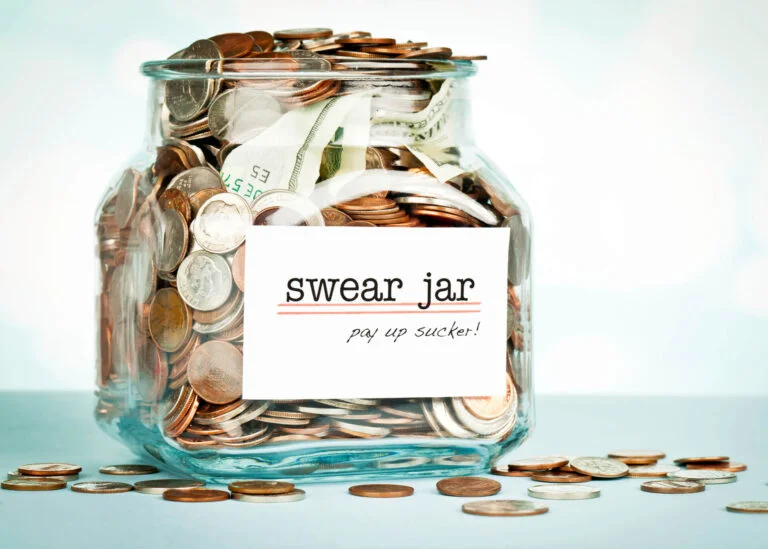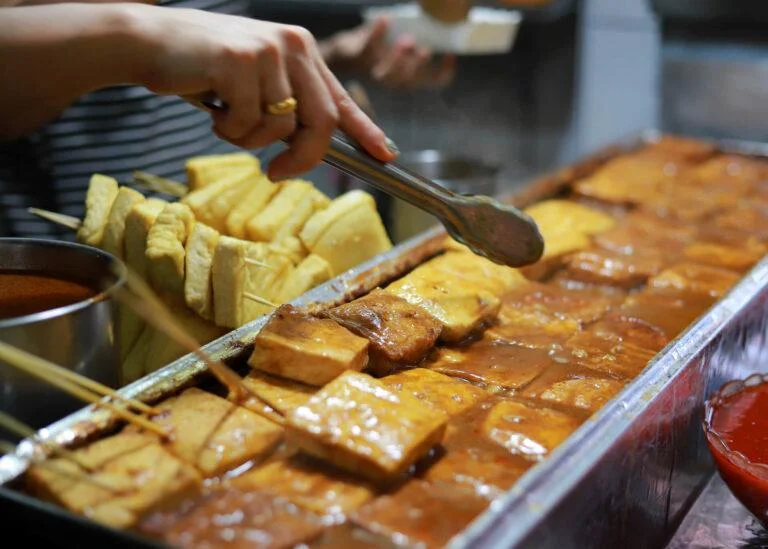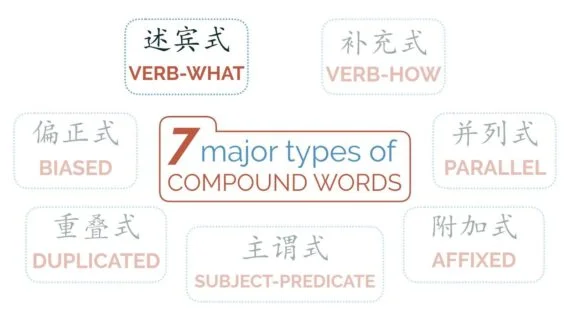30 Chinese Cuss Words For Any Situation

Cusses, curses, and swears are some of the most fun things to learn when you begin studying a new language. Mandarin Chinese has a wide range of bad words and vicious insults ranging from calling someone a “stupid egg” to cursing their entire ancestral line going back eighteen generations. Some are funny, and some are just mean. So let’s dive in and learn some of the Chinese cuss words that will have you swearing like a pro!
Mild Chinese cuss words
Let’s start with some of the lighter Chinese Mandarin cuss words before we get to the really bad language. These insults and curse words can be used among friends and in public for the most part without much malice or ill intent other than just to lay a diss. Take it one step further and slip a few of these into your daily conversation, and you’ll sound like a native.
1. 笨蛋 – Bèndàn
For some reason, calling someone an egg is considered an insult in Chinese, and as you go through this list, you’ll see the character 笨 repeated more times than you can count. 笨蛋 literally means “stupid egg.” If it doesn’t sound super cutting, that’s because it isn’t. Calling someone a 笨蛋 isn’t so much a curse word in Chinese as it is just a nickname you can give to your friends to tease them. This essentially means “idiot”.
2. 笨人 – Bèn rén
Stupid is as stupid does. 笨人 basically means idiot or fool. Did you have a big test at school but forget to study? 笨人. Did some clumsy idiot accidentally spill spicy, red Sichuanese mala sauce all over your new white shirt? 笨人. This insult can be used either on yourself or others and is not all that heavy or severe when it comes to bad words in Chinese.
3. 坏蛋 – Huàidàn
If someone has done something that is either evil or wicked, you can go ahead and call them a “bad egg” or a 坏蛋. While telling a person that they are a 笨蛋 or “stupid egg” is an insult to their intellect, calling someone a 坏蛋 or “bad egg” is an attack on their character. A close English equivalent could be calling someone a “bad apple.”
4. 混帐 – Hùnzhàng
Is your friend’s story not adding up or sounding like a whole bunch of BS? Call them out on their bull by using the word 混帐. The character 混 means “confused,” and 帐 is an “account.” So when we say someone has a “confused account,” this is how we call them out for being a lying scoundrel.
5. 二百五 – Èrbǎiwǔ
Why is the Chinese slang 250 (二百五) an insult? This put-down comes from an old Chinese story in which a king is enraged at the murder of his best war minister. Rather than investigate at random, the wise king offers up a reward of 1,000 taels of gold, claiming that the killer, in fact, did him a service.
Sure enough, the next day, four men show up and claim that it was them who killed the minister. The king then asks that if the reward is 1,000 taels of gold and they carried out the assassination, how much should each man get? The four men, thus in unison, proclaim, “Two hundred and fifty!” thus incriminating themselves as the murderers.
Today 二百五 is used as a casual joke between friends and refers to someone innocently naïve and dumb. You can also say “二” for short. While it’s not one of the most negative words, sometimes, if something at a shop costs 250 RMB, the clerk will adjust it to 249 RMB so as not to offend the customer. Essentially, this means “dumbass”.

6. 你真烦人 – Nǐ zhēn fánrén
Younger sibling won’t stop pestering you? “你真烦人!” The meaning of this expression is, “You are so annoying!” It is not the worst of all swear words in Chinese and is pretty tame by most standards.
7. 滚开 – Gǔnkāi
If you directly translate 滚开 into English, you’ll get something along the lines of “roll away.” However, a better English equivalent would be telling someone to “go to hell” or “piss off.” However, be a bit careful because while it’s not the worst of Chinese swear words, the tone is very stern and can be interpreted as such.
8. 滚蛋 – Gǔn dàn
Another egg-related Chinese curse word! This time, it means a “rolling egg.” By calling someone a “rolling egg,” you are essentially telling them to “f*ck off” and leave you alone. 滚蛋 is much sharper than 滚开, so proceed with caution. You can also shorten it to simply “滚” gǔn to pack a bit more of a punch.
9. 拍马屁 – Pāi mǎ pì
You know that one classmate or colleague that is a total suck-up and the biggest bootlicker you’ll ever meet? 拍马屁 is that person. The three Chinese characters that make up this swear are 拍 (to beat or clap), 马 (horse), and 屁 (butt). In other words, “to pat the horses behind.” The best English equivalent would be “brown-noser” for similar reasons.
10. 你疯了吗?– Nǐ fēngle ma?
Imagine you are driving through Chinese traffic during rush hour, and some lunatic on a scooter cuts you off, zooming around at demon speed. “你疯了吗?” you scream as you sputter to regain control of the situation. This phrase literally means “Are you crazy?” and is usually shouted with passion and anger.

Mild Chinese profanity: Chinese swear words to use with caution
Here we go, getting a little spicier. These Chinese swear words, insults, and curses are a bit more intense, so it’s recommended that you know your audience and use them with caution. Could you say them when speaking to your friends? Yes. Would you use them in front of your grandmother? Absolutely not.
1. 干 – Gàn
干 is the Chinese equivalent of the f-word and is used by Chinese people in the more literal “making love” sense of the word. In terms of Chinese curse words, while not the meanest of swears, the right person hearing you say it at the wrong time could still get you in a fair bit of trouble.
2. 靠北 – Kào běi
靠北 is Taiwanese slang that won’t hit hard over in mainland China. However, yelling this obscenity over in Taiwan will surely pack a punch and make your message heard. 靠北 is used when someone is being loud, obnoxious, or especially when they are being whiney. In other words, “Shut the hell up!”
3. 屌丝 – Diǎo sī
Some Chinese swear words have gotten pretty creative with what they imply, which may require a little extra imagination for those learning Chinese. The literal meaning of 屌丝 is “male pubic hair,” which is a roundabout way of calling someone a loser. Why does calling someone “male pubic hair” mean that they are a loser? Their social stature is so negligibly low that they could be pubic hair for all you care.
4. 王八蛋 – Wáng bā dàn
Not the most offensive of all Chinese swear words, 王八蛋 can mean “tortoise egg” or “turtle egg” and is yet another entry in the list of egg-themed Chinese curse words. If you call someone a 王八蛋, it’s implied that you think they are a stupid man, so dumb that they can’t tell a turtle egg from a chicken egg. Another potential translation for this insult is “bastard,” but like all Chinese cuss words, the severity largely depends on the context and tone in which it is said.
5. 牛屄 – Niúbī
Many Chinese learners will hear this curse word and pick it up from a Chinese friend without ever realizing that it has been a bad word the entire time. The literal translation of 牛屄 is “cow vagina.” However, surprisingly the meaning is not negative at all. The closest English equivalent would be “badass,” and the implication is that if something is 牛屄, it is cool and breaks the rules.

6. 混蛋 – Hún dàn
In Chinese, insulting someone’s mother or bloodline is a big no-no and can land you in hot water. When you call someone a 混蛋, you call them a “mixed egg” and thus imply that their bloodline is impure or that one of their parents was unfaithful. Of all the egg-related curse words, “mixed egg” is the harshest and the only one that can bring you some real trouble. Essentially, this means “asshole”.
7. 傻缺 – Shǎquē
傻缺 is not considered the ugliest of Chinese curse words, but you can still press all the right buttons if you know where to push them. 傻缺 is an insult to someone’s intellect and is perhaps akin to calling someone a “fool.” For example, when you don’t study for a Chinese exam and get a low mark, your mom might call you 傻缺 in response. This cuss word is not common in mainland China.
8. 三八 – Sān bā
三八 is one of the most hurtful insults you can call a woman in Chinese. 三八 or “38” is a Chinese curse word used to devalue a woman and emphasize that she is a heartless, trashy, dumb b*tch. While you should never call someone’s mother 三八, just as 牛屄, it also carries a positive meaning. Girlfriends will refer to one another as 三八 from time to time, similarly to “b*tch,” which has lost much of its hurtful edge in English.
9. 戴绿帽子 – Dài lǜ mào zi
Chinese people will say that if your wife or girlfriend is cheating on you, you are 戴绿帽子 or “wearing a green hat.” The story goes back to the Yuan dynasty when a decree stated that the family members of prostitutes had to wear green hats to distinguish themselves from the crowd. Today, if you are out wearing a green hat in public, you might get some funny stares and nervous giggles, as green hats are still a bit of a social stigma in Chinese culture.
10. 变态 – Biàn tài
The direct translation of 变态 word is “pervert,” but it can also be used when someone is not right in the head. For example, if your buddy makes an off-colored joke or says something a bit sick, saying 变态 would be a good way to show your disgust.

Severe swear words in Chinese: Truly offensive Chinese curse words
These are the ugliest, rudest, and most savage Chinese insults and swears that would make your grandmother faint. So use them with caution and make sure that you understand what you’re saying before it leaves your mouth. Otherwise, your next meal may end up being a bar of soap!
1. 操你妈 – Cào nǐ mā
Of all the bad words in Chinese Mandarin, 操你妈 is probably one of the most classic and insulting swears you can use to take someone down a notch. These negative-meaning words consist of three simple characters: 操 (f*ck) 你 (your) 妈 (mom). Put it all together, and not only are you insulting someone’s mother, but you are going ahead and disrespecting someone’s entire family, which is not typically appreciated in any culture. Use with extreme caution!
2. 二逼 – Èr bī
At times, Chinese cursing can get pretty vulgar, especially when it comes to women’s anatomy. 二逼, literally meaning “stupid vagina,” is a rather crude way to call someone a “f*cking idiot.” Again, use it at your own discretion. While calling someone 笨蛋 may get a disapproving scowl, calling the wrong person 二逼 may lead to a fight.
3. 贱女人 – Jiàn nǚ rén
The only time you should call someone a 贱女人 is if you are literally referring to a female dog. Otherwise, you are calling someone a straight cold b*tch. Unlike 三八, calling someone 贱女人 typically does not carry any positive context whatsoever. Did you get into a fight with your girlfriend? While this Chinese swear word may end the argument, it may also end the relationship.
4. 卖豆腐 – Mài dòu fu
In Chinese culture, topics related to sex are often carefully guarded by flowery euphemisms that cloak the raw vulgarity of harsh Chinese swear words. While seemingly innocent-sounding at first, if someone is 卖豆腐 or “selling tofu,” it is implied that they are selling their body or are, in essence, a sex worker. If you are still confused about where this euphemism comes from, perhaps consider the soft, bouncy, and supple texture of raw tofu itself and go from there.
5. 吃豆腐 – Chī dòu fu
If someone is selling tofu, then, on the other hand, you have to have someone who will be eating tofu. The phrase 吃豆腐 or “eating tofu” describes a person (usually a man) who is outright perverted or tends to spend his money on sex workers and strippers. For those who have just started to learn Chinese, this can be a dangerous phrase because if you unknowingly ask someone 你喜欢吃豆腐吗? (Do you like eating tofu?), you may come to realize that you have accidentally offended the person by implying they are a total sleazebag.

6. 公共汽车 – Gōng gòng qì chē
公共汽车 is one of the first words in Chinese that those studying the language will learn when they first pick up a Mandarin textbook. But did you know that this Chinese word has a much more scandalous implication? The literal translation of 公共汽车 is “public bus,” and by calling a woman these two words, you are implying that, like a public bus, she can be ridden anytime, by anyone, and for cheap.
7. 他妈的 – Tā mā de
The phrase 他妈的 translates to “his mother’s” in English and can be used similarly to “dammit” or “the eff.” 他妈的 intensifies the situation, and often, it will help to interject when you disagree in a heated row. Remember, though, Chinese cursing is a two-way street, and so if you bring the argument up a notch, don’t be surprised if you are met with a quick succession of Chinese curse words far worse than what you said prior.
8. 你他妈的看什么? – Nǐ tā mā de kàn shénme?
People in big cities tend to have a fondness for this phrase among other Chinese cuss words. If you accidentally bump into someone with a short temper or get too close into their personal space, you can expect a quick burst of 你他妈的看什么? or “What the eff are you looking at?” Typically, this curse is belted by people with hotshot attitudes who need to get something off their chest, so it’s usually best just to walk away and not engage further.
9. 傻逼 – Shǎ bī
The phrase 傻逼 translates to “stupid vagina” and is usually reserved for describing a person that is hard to get along with or is just a bad person in general. Many curse words in Chinese have something to do with the female reproductive system, as you can see, so be mindful of your audience just as you would be in English. However, if used jokingly among friends, 傻逼 can be shortened to just SB and sent over text to criticize something careless or stupid that your friend did.
10. 操你祖宗十八代 – Cào nǐ zǔzōng shíbā dài
The Chinese language is tightly intertwined with culture, and Chinese swear words reflect the nearly 5,000 years of history behind the language. 肏你祖宗十八代 is the mother of all Chinese curse words. The end of the end.
The king of bad Chinese words.
The literal translation of this bombshell is “f*ck your ancestors all the way back to the eighteenth generation,” and boy does this one cut deep. There is no English equivalent to just how bad this one is, and it is one of the few absolutely unforgivable insults. So if you drop this one, you better mean it because you can bet that fists will follow.
The last say on Chinese cuss words
And there you have it! Your Chinese vocabulary just got a whole lot dirtier and a whole bunch meaner. Just remember, when speaking in a foreign language, you’re a guest in another culture’s tongue. Just because you can say it doesn’t mean that you should. Discretion is advised, and we hope you use these Chinese swear words only in the appropriate setting. Happy swearing!
Of course, you don’t have to just stop at learning swear words in Chinese. Take our FREE 60-second Mandarin Fluency Scorecard! It’s designed to assess your current skill level and provide you with a personalized guide to becoming fluent in under a minute.
Find out your personal weaknesses, discover the next steps tailored to your level, and get a custom report with immediate action steps. And the best part? It’s completely free and takes less than a minute. Click below to take the first step toward mastering Mandarin beyond the Chinese profanity!
FAQs about Chinese Cuss Words
What are some common swear words in Chinese I might hear in daily conversation?
While it’s not always polite to use them, common cuss words in Chinese you might hear include “笨蛋” (idiot), “混蛋” (asshole), and “二百五” (dumbass). These are considered mild but should still be used cautiously.
Are cuss words in Chinese used the same way as in English?
Cuss words in Chinese can be similar to English in terms of expressing frustration or anger, but they often carry a deeper cultural significance. It’s important to understand the context before using them.
What should I avoid when using cuss words in Chinese?
Avoid using any bad words in Chinese in formal settings or with people you’re not familiar with. Insults relating to someone’s family or ancestors are particularly offensive and should be used with extreme caution, if at all.
Can understanding swear words in Chinese help with language learning?
Yes, understanding swear words in Chinese can give you insight into cultural nuances and emotional expression. However, they should be learned for comprehension, not necessarily for use.
What are the risks of using Chinese insults incorrectly?
Misusing Chinese insults can lead to misunderstandings, offend others, and even cause conflicts. It’s essential to grasp the weight of the words and the context in which they are appropriate.
Is Chinese profanity taken more seriously than English swear words?
In many cases, yes. Chinese profanity can be deeply tied to family and honor, making some phrases extremely disrespectful. It’s best to use them only if you fully understand their impact.








